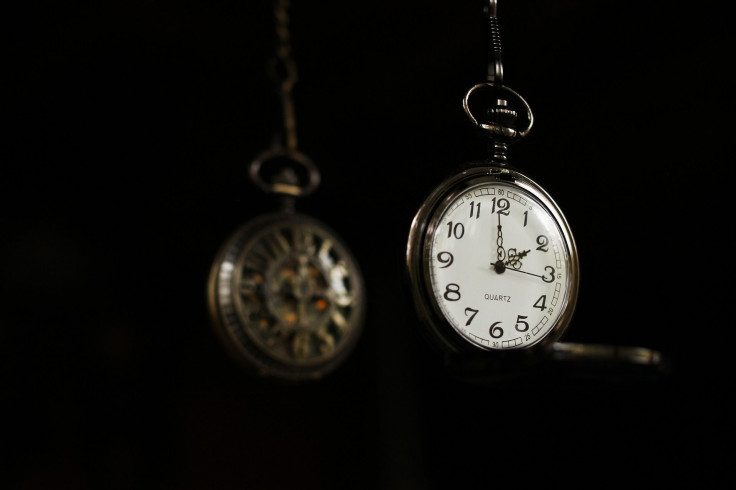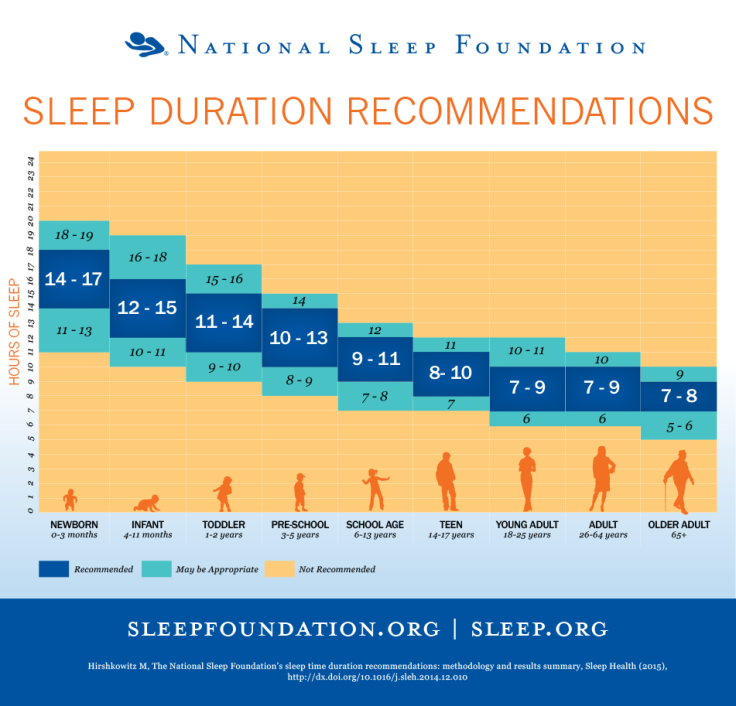Does Hypnotherapy Put An End To Sleep Problems? Here's What Happened When I Tried It

"Your body forgot how to sleep."
It is 5:30 p.m. on a Monday, and I’m on the phone with hypnotherapist Joan Teasdale. She seemed the most promising out of the few therapists who replied to a query I posted the week before.
For a year and a half now, I haven’t been able to fall asleep before 1 a.m., and that’s on a good night. It started in May 2014, when I began commuting almost two hours from central New Jersey to New York each day for work. I was waking up at 5:30 a.m. to get a 6:30 a.m. bus each morning, boarding a 6 p.m. bus back to get home around 8 p.m. I had only a couple hours to shower, eat, and relax before having to get ready to do it all over again. On the nights I found myself still wide awake at 3 a.m., I simply wouldn’t sleep and splurged on the larger coffee when I got to work.
This kept up in Brooklyn, too; I was finally able to move in December 2014, cutting my commute down to a beautiful 30 minutes — but I was still struggling to get enough hours of quality sleep. After over a year of too little sleep and too much coffee, I came to the only conclusion possible: Sleep deprivation wreaks havoc on the human body.
Inadequate sleep time messes with the brain's emotional response; it makes every little thing seem important the next day. It also negatively affects a person's self-control, fat metabolism and insulin, and ability to recall memories. And that's just the light stuff. Some experts associate sleep deprivation with serious long-term health problems, like obesity, diabetes, and cardiovascular disease.
With all of that in mind (and before I got in touch with Teasdale), I began to build a healthier routine: set my phone to "do not disturb" at 10 p.m., take 2 milligrams of melatonin, make a cup of chamomile and lavender tea, and read however many pages of the book I was reading before my eyelids felt heavy and I drifted to sleep — "the magic half hour," as Teasdale calls it. It didn't put me to sleep as quick as I thought a supplement would, but about an hour after taking it, it was lights out. I was falling asleep before midnight, and even getting the 7 to 9 hours The National Sleep Foundation recommends for my age group.
I told my co-worker about this and he mentioned hypnotherapy could be helpful for problems like mine. Shortly after, Teasdale and I had our brief consultation over the phone and I walked up to her West Village office that Friday.

Freaked Out, In A Good Way
The older guy swinging the pocket watch in front of your face, repeating in a monotone voice, "You are getting sleepy, very sleepy?" That's not how hypnosis works. Or at least that's not how Teasdale's hypnosis works.
In her response to my query, Teasdale explained her hypnotherapy practice "is geared to getting you on track, managing stress, and overcoming those blocks holding you back." On the phone, too, I got the impression she takes a balanced approach to her clients' problems. In addition to asking me about my sleeping habits, she had asked about my diet (also bad) and exercise routine (don’t get me started).
Sitting across from Teasdale at her desk, I went over each of these again: why I sought her out, when I noticed my sleep was becoming a problem, and what I'd been doing to fix it. She explained a bit how the session would go, starting with two written-word exercises. The first asked me to write down four words I would use to describe myself, four words others would use to describe me, and how I felt about others' words to describe me. Then, I wrote down on a separate piece of paper my reason for being there, and Teasdale asked me to free associate some of the words. So for example, if the word was "health," another word could be "wellness." These two exercises gave Teasdale a better idea of the language I use when both talking about myself and others, and she would pick from them when she was talking to me during the actual hypnosis. "You are most suggestable to yourself," she said.
Put it another way: We're oftentimes the most helpful person to talk to.
But before that, I moved my chair to the right of her desk for two more exercises — one that would measure my suggestibility to the therapy and gauge how I take in information (I fell right in the middle), and another that would put me in a light hypnosis. The latter is something we actually experience on a daily basis, Teasdale said; but being lightly hypnotized in a controlled environment primed me to be more open to positive thoughts and ideas. Outside this environment, that magic half hour before you fall asleep is considered light hypnosis, as are those moments in the car where you're on your way home and don't remember the drive in its entirety. You've practiced this drive so many times your subconscious mind knows exactly what to do.
My left hand was resting on Teasdale's desk, the right on my right leg, with both feet firmly on the ground, when Teasdale began talking to me in a very calm voice. She said to imagine a balloon string was tied around my wrist and my left hand was slowly rising toward my face. She told me to take deep breaths and with every breath, raise and press my left elbow into the table. The ease with which this happened almost made me burst into laughter because I was a bit freaked out, in a good way.
Once my hand was at my face, Teasdale brought it back down and let me know I was now in a light hypnosis. She led me to the black, soft-leather recliner — kind of like the one you see at the dentist — in middle of the room. A chair I'd been sneaking glances at since I sat down.
Theory of Mind
Learned behavior wins out over thought every time. You may think to yourself, "I want to sleep tonight," "I want to quit smoking," or "I want to eat healthy," but it’s difficult to change what you've already spent time doing. The repetition is what commits the behavior or thought pattern into the subconscious; then it becomes automatic. The subconscious reportedly accounts for 90 percent of the mind and only 10 percent is conscious.
I caught so few zzz's over the past year that I was in an actual habit of not sleeping well. In order to change it, I'd have to focus directly on my subconscious — the very purpose of hypnosis — and go behind the scenes of all logic and reason.
Hypnosis can "bypass the critical filter" between the conscious and subconscious mind, so therapists like Teasdale can help reprogram the subconscious with new information. To Teasdale, the subconscious mind works like a memory bank or a picture book; it categorizes your unique life experiences with associated emotions and is what allows the body to run on autopilot or space out to give the brain a break.
This is formally known as the Theory of Mind (ToM), something Simon Baron-Cohen first described as "being able to infer the full range of mental states (beliefs, desires, intentions, imagination, and emotions) that cause action;" Baron-Cohen said having ToM means being "able to reflect on the contents of one’s own and other's minds."
All the while my body felt incredibly relaxed, but I myself wasn't asleep; I was with Teasdale the entire time. It was as if I’d taken a moment to meditate in a really comfortable chair, focusing on my breath and letting go of any anxieties. I remember Teasdale telling me, as proof the hypnosis was working, I would start to remember my dreams.
My morning dreams, she had said early on, was my subconscious releasing and venting out the emotion that was holding me back from sleeping. Being able to remember them, to know what I was venting would eventually help me feel better.
Teasdale counted up from zero to five and stated "eyes open wide awake" to signal the hypnosis was over. I propped myself up in time and moved back to the chair at her desk. I distinctly remember how heavy I felt, like every single fiber and muscle in my body was coated in molasses. I told her this, and she said I had retreated deeply. Also, my left elbow really hurt. She said it could have been I had listened well when she asked me to press it into the desk during that one exercise.
That was it. She gave me the papers we worked with, some detailing post-hypnosis care, including keeping a gratitude journal and eating a high-protein breakfast, and I walked out to go to David's Tea on Bleecker.

Did It Work?
I went to bed later that first night after I'd been "hypnotized." When I did finally settle in, I did as Teasdale told me: I skipped the melatonin and the book, and instead, I took out a notebook and wrote down three things I was grateful for and three affirmations. Magic hour quickly approached after that.
Practicing gratitude right before bed is like exercising to produce physical change: One practices new awareness in the mind, Teasdale said. Envisioning, repeating, and reinforcing new thoughts and new ways would eventually seep into the subconscious and ultimately become automatic behavior. And when you consider how your brain processes everything from the day as you sleep, it makes sense to fall asleep feeling positive and grateful.
I know, I know — you want to know if it worked or not. On the matter of remembering my dreams, it 100 percent did. I woke up the morning after our session with a vivid image of me sitting in a car and talking to my sister about a text I received and didn't appreciate. I got out of the car and noticed red bumps on my leg as we walked into a mall. My eyes opened shortly after that. Just know that this dream has to do with particular anxieties I recalled while sitting in Teasdale's office.
Every night since being hypnotized I've been able to recall a majority of my dreams; that first week I remembered every single one. I keep my journal and I practice my affirmations, logging more seven hour-night sleeps these past few weeks than I have in long time.
That said, I don't wake up feeling as refreshed as I’d like to. Or maybe as refreshed as I'd hoped. I’m also aware that my improved sleep could be the result of so many other things, like the fact I'm now months into my new sleep routine. I know, too, you remember more of your dreams when you wake up during the REM (rapid eye movement) cycle; it’s when our dreams are more likely to happen.
But, I am much more aware of how my mind works and responds to my thoughts and actions. I’m aware elements of my dreams signal negativity I may not realize I’m holding on to — still holding on to. I take a little more time each morning, too, just to lie there and let whatever positive thoughts I have to sink in.
Quality sleep is informed by so many things. If hypnosis has made me more aware of that so I can act accordingly during hours I’m not asleep, then yeah, I guess it worked.
Published by Medicaldaily.com



























